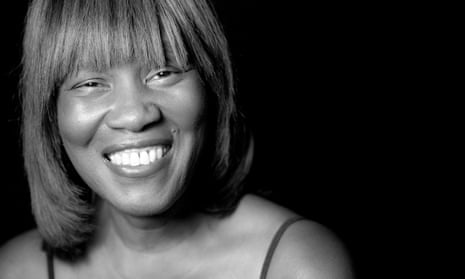“Hera Lindsay Bird has attracted the biggest hoo-ha with a poetry book I can recall,” wrote one reviewer of the New Zealand-born poet, whose recently released debut collection has become a cult bestseller in her home country. And rightly so: Bird’s frank, outrageous writing – see, for example “Keats is Dead so Fuck Me From Behind” – is in turns bleakly hilarious and peppered with pitch-perfect similes (“the days burn off like leopard print”; “Love like Windows 95”). It has made me, like many others, more excited about poetry than I have been in a long time.
She may be half a world away, but her voice seems to speak to women of my generation regardless of geography. “I love it when people who don’t usually like poetry like my poetry,” she told an interviewer recently. “It’s a mean joke, like tricking someone into joining an improv troupe.” One poem, entitled Monica after the character from the 90s sitcom Friends, has been so popular that the website that published it, The Spinoff, received more hits than it has had in its history.
That her poetry is creating such excitement isn’t just about Bird’s talent and the way she speaks to a younger audience, although those are of course major factors. As Bryan Appleyard noted in a piece for the Sunday Times, the medium is seeing a significant revival of interest that has the potential to reach a level not seen since the Victorian era, and much of it thanks to internet culture and the 24-hour news cycle.
I don’t need to tell you that we are living in strange, interesting, and often horrifying times. Rev Dr Jane Leach’s Radio 4 Thought for the Day last week reflected on how people turn to poetry in times of crisis. Through our screens and news feeds, we increasingly witness acts of violence and horror that defy straight analysis. It’s no wonder that poetry is providing emotional succour where the bleak language of news reports so often fails. And in the process, it is going viral.
It’s an amazing development, considering that poetry sells so little – though this may be changing with the revival this year of the Penguin Modern Poets series – and is often seen as rarefied, opaque and elitist, the province of small readings and dusty corners of bookshops, the hobby of pretentious white men with hefty qualifications and little beards. As an art form, it is not just met with bafflement but often with disdain and even loathing, as Ben Lerner’s new essay The Hatred of Poetry discusses at length.
Poetry has long been viewed as inaccessible. There was a sense that you had to be privileged, educated, and “in the know” in order to discover it. Not so now, in these turbulent times. After the killing of Michael Brown in Ferguson, Good Bones by Maggie Smith went viral (“Life is short, though I keep this from my children”), and then again in the wake of Orlando.
The killing of black men by police officers in the US saw Twitter users turning to Clint Smith’s what the cicada said to the brown boy, a poem that sums up structural racism with a gut punch (“but every time they swarm you shoot / get you some wings, son / get you some wings”); the fightback against rape culture has been reflected in the flocking of millions of readers to Patricia Lockwood’s Rape Joke.
So relevant and so real.
— the other one (@imfromraleigh) April 9, 2015
"what the cicada said to the brown boy" x @ClintSmithIII pic.twitter.com/pEgqXIklgW
Perhaps it is partly because politics has, with Brexit and the terrifying rise of Donald Trump, become so toxic. Debate has descended to a level that is poisonous and visceral. It is a politics governed by emotion, just as poetry often is. Perhaps this is why, in order to understand the transformation we are seeing in public discourse, you might turn to Skinhead by Patricia Smith instead of a newspaper. It is written with a scalpel (“I’m just a white boy who loves his race / fighting for a pure country”) and is even more powerful when heard performed live.
Indeed, to hear the words spoken by the poet herself is an experience in itself, one that lends itself well to what you might call “virality”. It packs an emotional punch, but also allows us to hear voices and see faces that have long been excluded from the canon of what is considered “good poetry”, whether for reasons of race, or class, or gender, or sexuality. And so Hi, I’m a Slut by Savannah Brown has over 1m YouTube hits, as does Dominique Christina’s The Period Poem, Javon Johnson’s cuz he’s black and Hollie McNish’s moving poem about breastfeeding, Embarrassed. Shrinking Women by Lily Myers has over 5m views, Dear Straight People by Denice Frohman over 2m.
It is gratifying that so many of these writers and performers are women. Women have always written poetry, of course, as have people from all kinds of backgrounds, but only since the birth of the internet has there been the potential for historically excluded voices to reach so many people. Around 20 years ago a feminist poet might have performed for around 10 women in a half-empty café; now, her words can reach millions of women and girls across the world. With it comes the relief that someone is speaking your language. Kate Tempest and Hera Lindsay Bird speak mine. No doubt you have your own favourites, and if you don’t, it’s easier than ever to go forth and find them.

